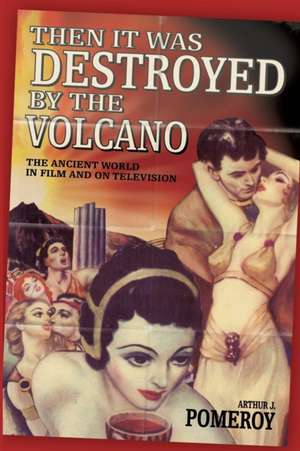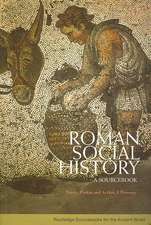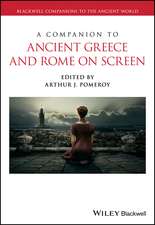'Then it Was Destroyed by the Volcano': The Ancient World in Film and on Television
Autor Arthur J. Pomeroyen Limba Engleză Paperback – 2 ian 2008
Preț: 164.40 lei
Preț vechi: 176.05 lei
-7% Nou
Puncte Express: 247
Preț estimativ în valută:
31.46€ • 32.76$ • 26.59£
31.46€ • 32.76$ • 26.59£
Carte tipărită la comandă
Livrare economică 10-24 martie
Preluare comenzi: 021 569.72.76
Specificații
ISBN-13: 9780715630266
ISBN-10: 0715630261
Pagini: 224
Dimensiuni: 156 x 234 x 12 mm
Greutate: 0.26 kg
Editura: Bloomsbury Publishing
Colecția Bristol Classical Press
Locul publicării:London, United Kingdom
ISBN-10: 0715630261
Pagini: 224
Dimensiuni: 156 x 234 x 12 mm
Greutate: 0.26 kg
Editura: Bloomsbury Publishing
Colecția Bristol Classical Press
Locul publicării:London, United Kingdom
Notă biografică
Arthur J. Pomeroy is Associate Professor of Classics at Victoria University of Wellington, New Zealand.
Descriere
Depictions of the ancient world on the stage and in art have always competed with a scholarly approach to the reconstruction of the past. By studying the multiple depictions of the ancient world on screen, this work emphasises its importance for the re-evaluation of the present.




















